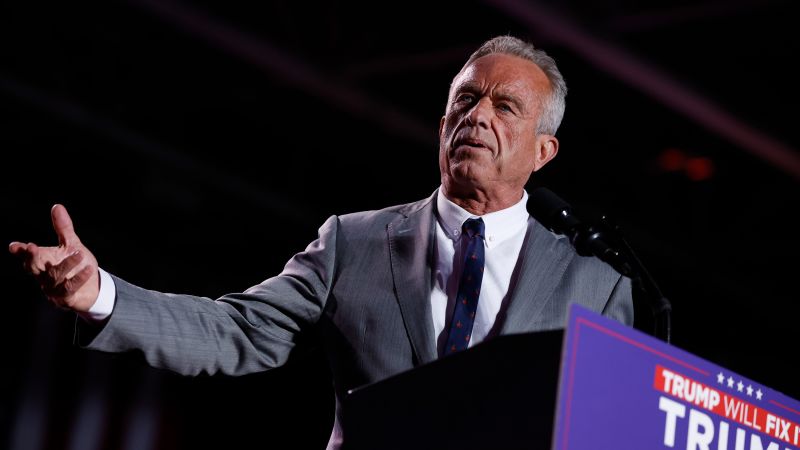The anticipation surrounding President-elect Donald Trump’s selection of Robert F. Kennedy Jr. as the head of the US Department of Health and Human Services (HHS) has stirred significant concern within the global health community. If confirmed, Kennedy would wield substantial influence over health policies not only domestically but also internationally. His history as a vaccine skeptic and an environmental lawyer has led many experts to worry that his leadership could undermine decades of advancements in infectious disease control, such as efforts against measles, polio, and HIV.
Kennedy has laid out various domestic challenges he aims to address if he assumes the role, focusing on issues like food supply safety, fluoride consumption, the advocacy for raw milk, and the examination of psychedelics. However, he has remained somewhat reticent about his international health agenda. This uncertainty causes health leaders to fear that his potential policies may disrupt current global health initiatives aimed at cooperation, coordination, and pandemic preparedness.
For instance, the United States has long been recognized as the largest financial supporter of global health initiatives, with significant investments through various HHS agencies, including the Centers for Disease Control and Prevention (CDC) and the National Institutes of Health (NIH). In 2024 alone, the US allocated an impressive $12.3 billion to global health efforts, highlighting the crucial role HHS plays as a funding body in advancing worldwide health standards. Health officials, such as Dr. Richard Carmona, the former U.S. surgeon general, emphasize that the secretary of HHS serves as the chief executive officer of the largest health, medical, and scientific organization globally, which is pivotal for maintaining trust and capacity in times of health crises.
However, there are profound concerns regarding Kennedy’s approach to vaccine skepticism. His long-standing opposition to vaccination, evidenced through the founding of his nonprofit, Children’s Health Defense, complicates the prospects for public health. Kennedy has been known to propagate misinformation regarding vaccines, claiming negative health impacts from compounds like thimerosal, despite consensus in the scientific community that supports vaccine safety. Even his tempered language during the campaign did little to assuage concerns about his potential policies at HHS.
Kennedy’s controversial stance on infectious diseases, particularly the perception of threats posed by AIDS, raises alarms among experts. He has asserted that HIV is not the primary factor in causing AIDS, attributing it instead to the degradation of the immune system due to drug use. Given that about half of the US’s global health spending is designated for HIV/AIDS initiatives, this perspective could jeopardize critically important efforts to combat the disease.
As COVID-19 continues to reshape health landscapes, Kennedy’s extreme skepticism towards COVID-19 vaccines, which he recently labeled “a crime against humanity,” signals a potential departure from established public health protocols. His skepticism could set back progress made in vaccination rates and ultimately contribute to the resurgence of infectious diseases like measles, which has seen a rising trend in cases post-pandemic.
In light of the looming threat of a future pandemic, health experts, including Kathleen Sebelius, a former HHS secretary, express concerns about Kennedy’s capacity to manage emergent health crises effectively. The fear is that he may pivot away from essential infectious disease funding and initiatives, particularly in light of criticisms surrounding his views on international health governance. The prospect of the US withdrawing or diminishing its support for organizations such as the World Health Organization (WHO) could have dire implications for worldwide health cooperation.
Moreover, Kennedy’s recent correspondence with Slovak officials who resisted signing updated International Health Regulations—an essential framework for handling public health crises—further exemplifies his controversial stance on international health policy. Experts argue that withdrawing US support from WHO would significantly weaken global health responses.
In conclusion, the implications of Robert F. Kennedy Jr.’s appointment as HHS secretary could reverberate far beyond American borders. With phases of distrust in vaccinations heightened by misinformation and historic battles against infectious diseases at stake, Kennedy’s leadership raises critical questions about the future of public health in America and the world. The potential for undermining vital health initiatives demands close attention and proactive advocacy from the global health community to navigate the challenging waters ahead.












